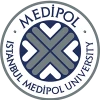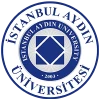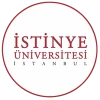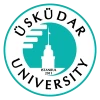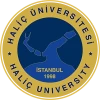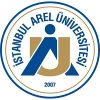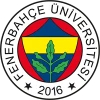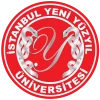Ophthalmology is a medical specialty that deals with the diagnosis, treatment, and prevention of eye disorders. It is a fascinating and rewarding field of medicine that requires a great deal of skill, dedication, and knowledge. If you're interested in studying ophthalmology in Turkey, you've come to the right place. In this article, we will provide you with a detailed guide to studying ophthalmology in Turkey.
Why to Study Ophthalmology in Turkey?
Turkey has a long history of excellence in medical education and is known for its high-quality healthcare system. It is home to many world-class universities and medical institutions that offer a wide range of ophthalmology programs. Here are some of the top reasons to study ophthalmology in Turkey:
Quality of Education
Turkey's medical education system is highly regarded worldwide, and its ophthalmology programs are no exception. Students are provided with a comprehensive education that covers both theory and practical aspects of the field.
Experienced Faculty
Turkish universities have experienced and highly qualified faculty members who are experts in their respective fields. They provide students with the knowledge and skills needed to succeed in the field of ophthalmology.
Clinical Exposure
Students studying ophthalmology in Turkey have access to some of the best medical facilities and clinical exposure in the world. They get to work with patients from diverse backgrounds and learn from experienced ophthalmologists.
International Recognition
Turkish medical degrees are recognized worldwide and are highly regarded by employers. Graduates of ophthalmology programs from Turkish universities are well-prepared to work in any part of the world.
How to Study Ophthalmology in Turkey?
Studying ophthalmology in Turkey requires a minimum of six years of study, including one year of clinical internship. Here's how you can go about studying ophthalmology in Turkey:
Admission Requirements
To be admitted to an ophthalmology program in Turkey, you must have a high school diploma or equivalent. Additionally, you need to take an entrance exam, which assesses your knowledge of mathematics, science, and language.
Application Process
Once you have met the admission requirements, you need to apply to the university of your choice. The application process typically involves submitting academic transcripts, language proficiency test scores, and letters of recommendation. Apply now
Language Requirements
Most ophthalmology programs in Turkey are taught in Turkish, so you must be proficient in the language. Some universities may also offer programs in English, but proficiency in Turkish may still be required.
Curriculum
The ophthalmology curriculum in Turkey typically includes courses in anatomy, physiology, pharmacology, optics, and pathology. Students also receive training in surgical techniques and patient care. The curriculum is designed to provide students with a strong foundation in the field of ophthalmology.
Internship
The internship is a mandatory part of the ophthalmology program in Turkey. It typically lasts for one year and provides students with hands-on clinical experience. During the internship, students work under the supervision of experienced ophthalmologists and provide care to patients.
Top Universities for Studying Ophthalmology in Turkey
Turkey has many universities that offer excellent ophthalmology programs. Here are some of the top universities for studying ophthalmology in Turkey:
Istanbul University, Istanbul Faculty of Medicine
Istanbul University is one of the oldest and most prestigious universities in Turkey. The Istanbul Faculty of Medicine is renowned for its ophthalmology program, which is taught by experienced faculty members.
Ankara University, Faculty of Medicine
Ankara University is another top-ranked university in Turkey that offers an excellent ophthalmology program. The Faculty of Medicine is known for its research and clinical excellence.
Hacettepe University, Faculty of Medicine
Hacettepe University is a leading medical institution in Turkey that offers a comprehensive ophthalmology program. The Faculty of Medicine has state-of-the-art facilities and a team of experienced faculty members who provide students with hands-on training and research opportunities.
Ege University, Faculty of Medicine
Ege University is located in Izmir, a coastal city in Turkey, and is known for its quality medical education. The Faculty of Medicine offers a well-structured ophthalmology program that covers both theoretical and practical aspects of the field.
Dokuz Eylul University, Faculty of Medicine
Dokuz Eylul University is a public university located in Izmir and is known for its excellent medical education. The Faculty of Medicine offers a comprehensive ophthalmology program that prepares students for a career in the field.
Cost of Studying Ophthalmology in Turkey
The cost of studying ophthalmology in Turkey varies depending on the university, the program, and your nationality. International students usually pay higher tuition fees than Turkish students. However, the cost of studying in Turkey is generally lower than in other countries in Europe or North America.
The average tuition fee for ophthalmology programs in Turkey ranges from $3,000 to $7,000 per year. Living expenses such as accommodation, food, and transportation are also relatively affordable in Turkey. On average, international students need around $400-$500 per month to cover their living expenses in Turkey.
Scholarships and Financial Aid
Many universities in Turkey offer scholarships and financial aid to international students who wish to study ophthalmology in Turkey. The Turkish government also provides scholarships to international students through the Turkish Scholarship Program.
To apply for scholarships, you need to check the university's website or contact the international office. The application process usually involves submitting academic transcripts, language proficiency test scores, and financial documents.
Career Prospects for Ophthalmologists in Turkey
Ophthalmology is a growing field in Turkey, with many opportunities for graduates. Ophthalmologists can work in public or private hospitals, clinics, research centers, or academic institutions.
The average salary of an ophthalmologist in Turkey ranges from $3,000 to $5,000 per month. However, experienced ophthalmologists with advanced training and skills can earn higher salaries.
Studying ophthalmology in Turkey is a great choice for students who want to pursue a career in the field. Turkey's excellent medical education system, experienced faculty, and clinical exposure provide students with a strong foundation in ophthalmology.
The relatively low cost of living and scholarships make it an affordable option for international students. Graduates of ophthalmology programs in Turkey are well-prepared to work in any part of the world and have promising career prospects.



